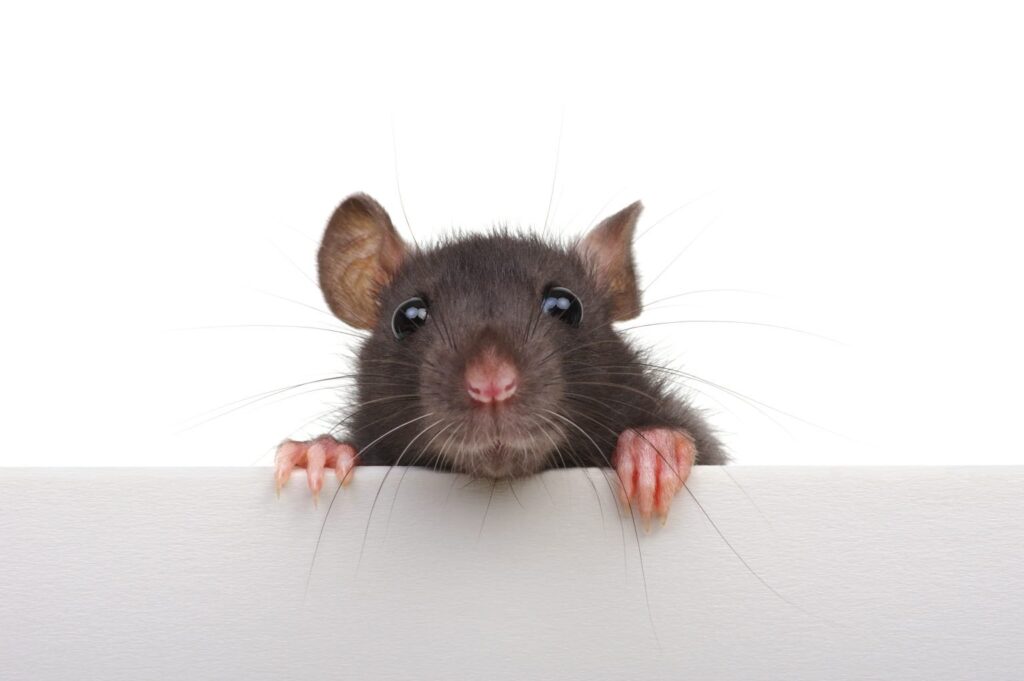Rats have been around for more than 25 million years. Like the cockroach, these rodents are difficult to get rid of and are excellent at causing havoc in a home or office. Rats thrive in nearly every environment, from urban communities (think New York City) to remote, rural areas (farms in the Plains). Rats carry diseases and are destructive, which is why it’s important to eliminate them as soon as a problem is detected.
The Norway Rat
Here in the Tennessee Valley, the most common species of rat is the Norway Rat, but it is often referred to as the common rat or sewer rat. Regardless, this type of rat is gray with a lighter-colored belly, weighs between half to a whole pound, and the body can grow up to 11 inches long while the tail is usually a little shorter than the body length.
Rats have excellent hearing and sense of smell, and while they can see colors, their vision is not great. They rely on their other senses for hunting. Norway rats will eat almost everything, which is how they’ve been able to survive for so long and in so many different settings.
Norway Rat Lifecycle
The Norway can live up to two years and begins reproducing at five weeks. A female can produce up to 40 babies in a year and give birth every few months. Basically, rats can multiply quickly.
Dangers of a Rat Infestation
Hearing scratching, clawing or scampering noises in the walls or from the ceiling are signs that something is where it shouldn’t be. The problem could be rats or other rodents, but regardless having live animals taking up residence is dangerous.
Rats carry more than a dozen diseases through their urine, salvia and feces, which can be dropped anywhere on a property, including places where meals are eaten or people sleep. Rat urine will seep into flooring, walls and ceiling tiles, leaving a strong odor and yellow stain. Places where food is stored, such as cabinets and a pantry are not safe from rats. These rodents will tear open bags of food and quickly contaminate anything that comes within their grasp and leaving behind droppings.
In addition to serious diseases, rats also carry other pests, such as lice, ticks and fleas. These can make other people and pets sick, plus the extra pests can also be difficult to remove.
Rats are well known for their destructive habits. They can eat through almost any material, including drywall, carpet, siding, insulation, roofing, wood, plastic and wires. Many rodents will chew wires as a way to sharpen their teeth and then use the material for nesting. These damaged wires cause a fire hazard and any holes on the exterior or interior of the property could lead to increased moisture and mold.
How to Spot Rat Damage
- Signs of feces or a strong urine smell in or around a crawl space, basement, attic, pantry or walls.
- Finding damaged walls or cabinets or torn pieces of insulation.
- Torn up food packaging.
- Hearing scraping, clawing or scampering between walls or above the ceiling.
- Finding insulation and other pieces of the home in random places.
Getting Rid of Rats
It’s best to first try and prevent rats, as well as other rodents. Check all exterior doors, windows and cracks around the property and make sure they’re sealed properly. Rats can condense their body to fit into a very small space. Remove any debris against the exterior, such as wood piles, because it gives rats a nice shelter. Also, make sure all exterior trash bins have well secured tops to keep rodents out.
If you suspect a rat problem or other rodents, call an expert immediately. The technicians at United Pest & Turf Control are trained, licensed and certified to properly identify a rat infestation and provide quick, safe and effective treatment. Rats are difficult to remove because of their ability to adapt quickly to their surroundings, so multiple removal efforts may be necessary, depending on the scope of the infestation. Call us today for a free estimate.
The Norway Rat (a.k.a. the common rat) in North Alabama and Southern Tennessee
Serving North Central Alabama and South Central Tennessee
Limestone County
Ardmore
Home » The Norway Rat (a.k.a. the common rat)


